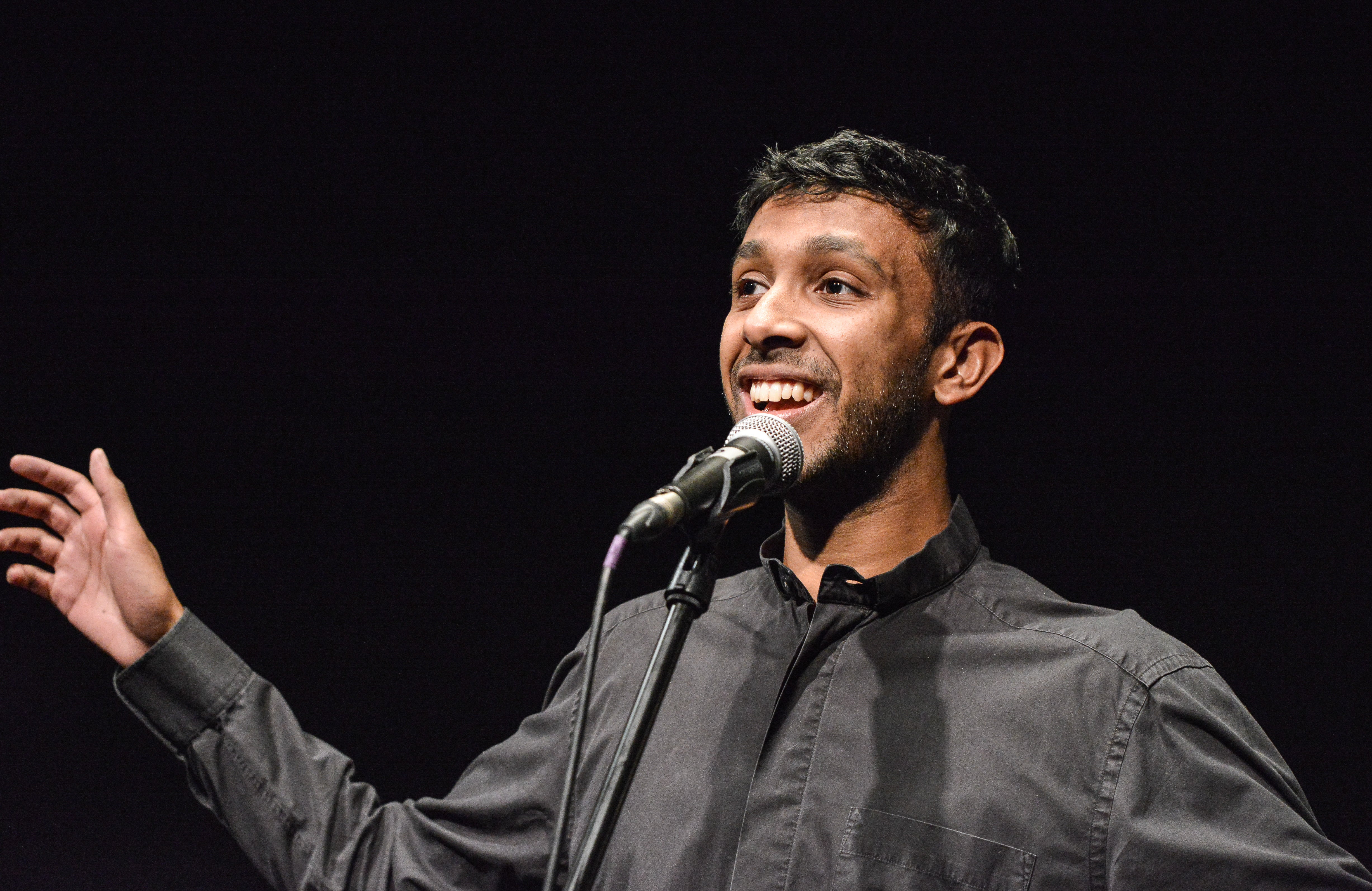little scratch review: Katie Mitchell breathes life into Rebecca Watson’s experimental novel
Seemingly unstageable novel comes to life with a terrific cast and mesmerising sound design

When it was announced that Rebecca Watson’s debut novel little scratch was being adapted for the stage, the news was met with “ooh”s and “aah”s. Released in 2020, the book follows 24 hours in the life of an unnamed woman. It’s a normal day where she wakes up, goes to work and tries not to think about the fact that she’s been raped. In Watson’s stream of consciousness-style story, each page is split into numerous separate columns as different voices and thoughts interweave. Her book is experimental in form and utterly devastating in content – hard enough to read, let alone imagine on stage.
But if anyone’s going to tackle a knotty text like little scratch, it’s director Katie Mitchell, who is known for her bold and often divisive stage adaptations such as her 2006 staging of Chekhov’s The Seagull. Adapted by Miriam Battye, Watson’s words have been split into four parts, played by Eve Ponsonby, Eleanor Henderson, Morónkẹ́ Akinọlá and Ragevan Vasan. The result is part spoken-word poetry (something Watson herself skewers in the text), part live soundscape. The actors walk onto the dimly lit stage, a tall microphone stand and pendant lamp awaiting each of them. They don’t move from their spots. Together, they play our lead, capturing the often contradictory thoughts in her head as she tries to get through the day. Sounds, voices and distractions from the outside world are also spoken, random notions overlapping with TripAdvisor reviews and texts from her boyfriend.
Together, the cast create a meticulously choreographed vocal performance, making it hard to single out any one star. While I was surprised when Vasan walked on stage (having assumed an internal monologue about sexual assault would be portrayed by women), it’s an ingenious inclusion. Voicing our female narrator like the others, Vasan is also able to bring the male characters to life without lessening their impact. Fear of men is a theme prevalent in the play, the woman claustrophobic as she finds herself in a lift with a random male colleague and flinching as she preempts street harassment from passersby. Standing at the end of the line, Vasan can be both part of the group and an ominous outsider.
The surprise fifth character of little scratch, however, is Melanie Wilson’s sound design. The pre-recorded flurry of the streets transports you to our narrator’s world, but it’s what happens on stage that’s truly magical. The actors pick up unassuming props from tables between them, holding them millimetres from the microphones to create a live soundscape. Fingers scrape on a brush for the cleaning of teeth, crisps are loudly crunched and water is spat in a bowl, the theatre filled with the visceral human noises we’re not supposed to notice. When our narrator anxiously scratches at her skin to the point of bleeding, the actors rub their nails back and forth on dense patches of fabric. My chest felt tight, watching that scratching.

Naturally, an experimental staging of an experimental text is never going to please everyone with everything. Mitchell has made a deliberate choice to keep the actors rooted to their spots throughout – beyond facial expressions, a rare hand movement or the picking up of props, the show is almost entirely static. My first reaction is to say that little scratch would make an as good, if not better, audio drama, but the actors’ performances prevented it from being visually dull for me (although I suspect this will be a sticking point for some). Perhaps it’s the knowledge that this is probably the only way you can dramatise Watson’s book. How do you stage an unstageable novel? Like this, it would seem.
‘little scratch’ runs at Hampstead Theatre until 11 December
Join our commenting forum
Join thought-provoking conversations, follow other Independent readers and see their replies
Comments


Bookmark popover
Removed from bookmarks